
Programm
1. Konferenztag
Donnerstag, 12. April
| 8:00–9:00 | Begrüssungskaffee und Anmeldung |
| 9:00–10:30 | Grussworte Luca Crivelli (CH) David Goodman (US) Milo Puhan (CH) Pascal Strupler (CH) Eröffnungsplenum: Regionale Unterschiede in der Gesuntheitsversorgung Keynote Sprecher: Jonathan Skinner (US) Moderation: Valérie Paris (FR) Agne Ulyte and Raphaelle Guerbaai (Emerging health care leaders) |
| 10:30–11:00 | Kaffeepause |
| 11:00 –12:30 | Parallel Sessions Session 1: From birth do death Session 2: Better data to address patients' needs Session 3: Regional variation to inform policy making Session 4: Preventive care Session 5: Improving emergency health care Session 6: Mental health care |
| 12:30–13:30 | Mittagsbuffet |
| 13:30–14:30 | Speed Networking nach Thema Speed date 1-10: Regionale Unterschiede in der Gesundheitsversorgung Speed date 11-20: Anreize für eine smarte Gesundheitsversorgung Speed date 21-30: Die Lücke zwischen Gesundheitsforschung und Politik schliessen Speed date 31-40: Gesundheitspolitik in der Schweiz |
| 14:30–15:00 | Kaffeepause |
| 15:00–17:00 | Plenum: Pitches und Ping-Pong-Plenum |
| 15:00–15:20 | Drei Pitches von Nachwuchsforschenden |
| 15:25–17:00 | Ping-pong-Plenum: Anreize für eine smarte Gesundheitsversorgung Keynote Sprecher: Sabina Nuti (IT) Stefan Spycher (CH) Moderation: Gwyn Bevan (UK) Emiliano Soldini and Kornelia Basinska (Emerging health care leaders) |
| 18:00–22:00 | Gemeinsames Abendprogramm |
2. Konferenztag
Freitag, 13. April
Parallel sessions
All presentations of the parallel sessions are downloadable as PDF by clicking on abstract title.
Thursday, April 12
11:00–12:30
From birth to death
Chair: Maria Wertli
Invited speakers: Thérèse Stukel and Femke Atsma
| 1 | 11:00– 11:15 |
Thérèse Stukel (invited speaker) |
Who are the high cost, high need patients? |
| 2 | 11:15– 11:30 |
Femke Atsma (invited speaker) |
|
| 3 | 11:30– 11:45 |
Mark Adams | Use of evidence based practices affects outcome and difference between Swiss and US neonatal units |
| 4 | 11:45– 12:00 |
David Goodman | Relationship between neonatal care intensity and outcomes across Texas hospitals |
| 5 | 12:00– 12:15 |
Oliver Gruebner | Geographic clusters of high use of preoperative chest radiography in Switzerland |
| 6 | 12:15– 12:30 |
Caroline Baehler | Regional differences in the intensity of treatment at the end-of-life |
Better data to address patients' needs
Chair: Thomas Rosemann
| 1 | 11:00– 11:15 |
Urs Johannes Mueller | Patient centered outcome registry (PCOR) |
| 2 | 11:15– 11:30 |
Stefanie Bachnick | Patient-centered care, nurse work environment and rationing of nursing care in Swiss acute care hospitals |
| 3 | 11:30– 11:45 |
Florian Liberatore | Ancient wisdom in organizational learning – Challenges in the development of a sensitive and informative patient satisfaction measure in elderly home care settings |
| 4 | 11:45– 12:00 |
Vasileios Nittas | Electronic patient-generated health data – A conceptual framework and its potential application to the Swiss health care context 3 |
| 5 | 12:00– 12:15 |
Laure Dutoit | HomeCareData: a new database for long-term care planning |
| 6 | 12:15– 12:30 |
Regional variation to inform policy making
Chair: Thomas Zeltner
Invited Speaker: Catherine Gerard
Discussant: Bea Heim
| 1 | 11:00– 11:15 |
Catherine Gerard (invited speaker) |
From atlases to action: reducing unwarranted variation in New Zealand |
| 2 | 11:15– 11:45 |
Barthold Vonen | From health care atlas to policy and governance towards reduced variations |
| 3 | 11:30– 11:45 |
Barthold Vonen | From health care atlas to policy and governance towards reduced variations |
| 4 | 11:45– 12:00 |
Reto Joerg | A GIS based model to detect regional differences in health care supply structures |
| 5 | 12:00– 12:15 |
Jan Fehr | Ending the HIV-Epidemic – The SwissPrEPared program |
| 6 | 12:15– 12:30 |
Preventive care
Chair: Arnaud Chiolero
| 1 | 11:00– 11:15 |
Maurane Riesen | Exploring variation in human papillomavirus vaccination uptake in Switzerland: A multi-level spatial analysis of a national vaccination coverage survey |
| 2 | 11:15– 11:30 |
Daniela Anker | Screening for and treatment of hypertension among older adults: less is more? A critical review of evidence |
| 3 | 11:30– 11:45 |
Emanuele Prati | Colorectal cancer testing in Swiss primary care practices: A cross-sectional study in the Sentinella Network |
| 4 | 11:45– 12:00 |
Yonas Martin | Colorectal cancer screening practices in Swiss primary care: Variation in care between physicians reporting for the Sentinella Network |
| 5 | 12:00– 12:15 |
Phung Lang | Evaluation of the school vaccination programs in Switzerland, 2005-2016 |
| 6 | 12:15– 12:30 |
Improving emergency health care
Chair: Peter Suter
Invited Speaker: Arnaud Perrier
| 1 | 11:00– 11:15 |
Arnaud Perrier (invited speaker) |
Improving emergency health care in an ageing population |
| 2 | 11:15– 11:30 |
Ksenija Slankamenac | Need for early identification of palliative patients in the emergencydepartment to decide best supportive strategies |
| 3 | 11:30– 11:45 |
Jean Odermatt | How can evidence based interior design contribute to the process of getting better (salutogenesis)? |
| 4 | 11:45– 12:00 |
Jean Odermatt | How can evidence based interior design contribute to the process of getting better (salutogenesis)? |
| 5 | 12:00– 12:15 |
Dominik von Stillfried | How many are a crowd? Why health policy needs to take a closer look at crowding in emergency departments |
| 6 | 12:15– 12:30 |
Mental health care
Chair: Emiliano Albanese
| 1 | 11:00– 11:15 |
Markus Wolf | Improving care for patients with depressive and anxiety disorders |
| 2 | 11:15– 11:30 |
Markus Wolf | Improving care for patients with depressive and anxiety disorders |
| 3 | 11:30– 11:45 |
Mandy Schulz | Mild cognitive impairment as a pre-dementia stage - Analysis of German nationwide claims data |
| 4 | 11:45– 12:00 |
Amélie Rouche | |
| 5 | 12:00– 12:15 |
||
| 6 | 12:15– 12:30 |
Friday, April 13
11:00–12:30
Public health surveillance (DE/FR session)
Chair: Marcel Widmer
Invited Speaker: Michael Jordi
| 1 | 11:00– 11:15 |
Michael Jordi (invited speaker) |
Regionale Unterschiede in der Gesundheitsversorgung |
| 2 | 11:15– 11:30 |
Marcel Zwahlen | The Swiss health care atlas - the first generic prototype |
| 3 | 11:30– 11:45 |
Nathalie Wellens | Bridging care institutions through a common language |
| 4 | 11:45– 12:00 |
Joerg Baetzing | Ein neuer Index zur Darstellung der Versorgungsbeziehung ambulantstationär auf Kreisebene in Deutschland: Der Sektorenindex (SIX) |
| 5 | 12:00– 12:15 |
Ramona Hering | Kleinräumige Gesundheitsberichterstattung als Planungsgrundlage für gesundheitliche Präventionsmassnahmen in Düsseldorf |
| 6 | 12:15– 12:30 |
Over-use and under-use
Chair: Roger von Moos
| 1 | 11:00– 11:15 |
Roberto Grilli | Overuse in cancer care. A review of European studies |
| 2 | 11:15– 11:30 |
Leander Muheim | Potential overuse and medical costs of proton pump inhibitors inSwitzerland: A claims data based observational study |
| 3 | 11:30– 11:45 |
Helene Aschmann | How individualized quantitative benefit harm assessments can inform preference-sensitive guidelines |
| 4 | 11:45– 12:00 |
Marco Kaufmann | Participants from the Swiss Multiple Sclerosis Registry (SMSR) who are not under regular medical care: Is there evidence for underuse? |
| 5 | 12:00– 12:15 |
Elisa Haller | Antidepressant prescription practices in the Swiss health care system |
| 6 | 12:15– 12:30 |
Kim Youngran | Decomposing regional variation in publicly funded newborn care |
Health care planning
Chair: Stefan Boes
Invited Speaker: Marina Davoli
| 1 | 11:00– 11:15 |
Marina Davoli (invited speaker) |
Regional outcome evaluation program (P.Re.Val.E.): reduction of inequality in access to effective health care in the Lazio region of Italy (2012‐2015) |
| 2 | 11:15– 11:30 |
Ulrich Wagner | Regional health care cata in the federated health care policy system of Switzerland – a bright or dooming future? |
| 3 | 11:30– 11:45 |
Malena Haenni Emmenegger | Still not expensive enough? - Non-economic considerations and intercantonal cooperation in the Swiss hospital sector |
| 4 | 11:45– 12:00 |
André Moser | Evaluation of the Basel hospital merger project in Switzerland |
| 5 | 12:00– 12:15 |
Justus Gallati | Simulation model for a needs‐based health care planning in Switzerland: the example of coronary heart disease |
| 6 | 12:15– 12:30 |
The cantonal and federal perspective (DE/FR session)
Chair: Morten Keller
Invited speakers: Hans Stöckli and Christoph Bosshard
| 1 | 11:00– 11:15 |
Hans Stöckli (invited speaker) |
|
| 2 | 11:15– 11:30 |
Christoph Bosshard (invited speaker) |
Health policy in Switzerland – Position der FMH |
| 3 | 11:30– 11:45 |
Christine Cohidon | Développement d’un modèle de coordination des soins en médecine de familleadapté au contexte du canton de Vaud, Suisse |
| 4 | 11:45– 12:00 |
Jonas Willisegger / Hannes Blatter | Tarifverhandlungen im Schweizer Gesundheitswesen |
| 5 | 12:00– 12:15 |
Lea Sgier | Die Demenzdiagnose zwischen Gesundheits- und Sozialpolitik |
| 6 | 12:15– 12:30 |
Analysis from administrative data bases
Chair: Nino Künzli
| 1 | 11:00– 11:15 |
Marion Schmidt | Asthma and COPD in Switzerland: Prevalence and direct medical costs according to health insurance claims data and a large population survey |
| 2 | 11:15– 11:30 |
Maria Fantini | Inter‐regional variation in opioid prescription patterns in Emilia‐Romagna and Tuscany |
| 3 | 11:30– 11:45 |
Humza Malik | Variation in the adoption of index laparoscopic cholecystectomy for acute cholecystitis and gallstone pancreatitis in the UK |
| 4 | 11:45– 12:00 |
Marc Hoeglinger | Variation in the role of primary care physicians in trauma care |
| 5 | 12:00– 12:15 |
Agne Ulyte | Systematic selection of indicators for healthcare service utilization research with claims data: a model example of diabetes mellitus in Switzerland |
| 6 | 12:15– 12:30 |
Planning the health care professional workforce
Chair: Ryan Tandjung
| 1 | 11:00– 11:15 |
Boris Kaiser | Physician retirement, practice closures and discontinuity of primary care - What are the causal impacts on patients? |
| 2 | 11:15– 11:30 |
Stefan Gysin | Interprofessional collaboration and the role of nurse practitioners in Swiss primary care ‐ How to collect and analyze relevant data |
| 3 | 11:30– 11:45 |
Sarah N. Musy | Explore variations in daily nurse‐to‐patient ratio over one year for six different units |
| 4 | 11:45– 12:00 |
Daniel Adrian Lungu | Working on avoidable variation among performance of Italian teaching hospitals: what is the role of the research activity? |
| 5 | 12:00– 12:15 |
Peter Bates | Creating a certificate in health care improvement for inter-professional teams to improve health care delivery and reduce variation |
| 6 | 12:15– 12:30 |
13:30–15:00
International perspectives
Chair: Milo Puhan
Invited speaker: Jack Wennberg
| 1 | 13:30– 13:45 |
David Goodman (invited speaker) |
On the overuse of U.S. acute care hospitals in managing chronic illness |
| 2 | 13:45– 14:00 |
Wenjia Wei | Variation of preoperative chest radiography utilization in Switzerland and its influencing factors: a multilevel study with claims data |
| 3 | 14:00– 14:15 |
Chiara Seghieri | Variation of deep vein thrombosis (DVT) and pulmonary embolism (PE) following orthopaedic surgery in Emilia‐Romagna and Tuscany |
| 4 | 14:15– 14:30 |
Maria M. Wertli | Regional variation in hip and knee replacements in Switzerland: a small areavariation analysis |
| 5 | 14:30– 14:45 |
Joachim Marti | Geographic and socioeconomic variation in breast cancer treatment in Scotland: an empirical analysis using linked patient‐level data |
| 6 | 14:45– 15:00 |
Integrated care
Chair: Ulrich Wagner
Invited speakers: Isabelle Peytremann Bridevaux
| 1 | 13:30– 13:45 |
Isabelle Peytremann Bridevaux (invited speaker) |
Integrated care: moving beyond standard evaluations to bridge the gap between evidence and policy? |
| 2 | 13:45– 14:00 |
Stuart McLennan | The spectrum of ethical issues in a learning health care system: asystematic qualitative review |
| 3 | 14:00– 14:15 |
Emily Reeves | Palliative care networks in Switzerland. A regional comparison |
| 4 | 14:15– 14:30 |
Troels Kristensen | Point-of-care testing of HbA1c in Type 2 diabetes care in general practice and the effect on hospital outpatient visits and inpatient admissions related to diabetes care: Evidence from a natural experiment in Danish general practice |
| 5 | 14:30– 14:45 |
||
| 6 | 14:45– 15:00 |
Health policy and politics
Chair: Rolf Marti
Invited speakers: Valérie Paris and Guenther Fink
| 1 | 13:30– 13:45 |
Valérie Paris (invited speaker) |
103 |
| 2 | 13:45– 14:00 |
Guenther Fink (invited speaker) |
Integrating early childhood development programs into the health sector ‐ evidence from Sao Paulo’s western region |
| 3 | 14:00– 14:15 |
Gwyn Bevan | Why does a cost‐effective behavioural change programme have a negligible impact on the projected epidemic of type 2 diabetes? |
| 4 | 14:15– 14:30 |
Phung Lang | Association between measles vaccine refusal during the period 2005‐2016 and the popular voting on the revision of the Epidemics Act in 2013 in Switzerland |
| 5 | 14:30– 14:45 |
Rosemarie James | Public health services and universal health coverage: An unbalanced relationship |
| 6 | 14:45– 15:00 |
Patient-sharing networks - a new concept to support outcome-oriented health policy interventions?
Chair: Dominik von Stillfried
| 1 | 13:30– 13:40 |
Dominik von Stillfried | Patient-sharing networks – a new concept to link research and health policy |
| 2 | 13:40– 13:55 |
Thomas Czihal | Applying social network analysis to ambulatory care in Germany |
| 3 | 13:55– 14:10 |
James O'Malley | Social network analysis and beyond - tools to identify cooperation of providers |
| 4 | 14:10– 14:20 |
Alessandro Lomi | Inter-Hospital patient referral networks: What do we know and what we would like to know? |
| 5 | 14:20– 14:40 |
Jonathan Skinner | The elusive link between health care spending and health outcomes |
| 6 | 14:40– 14:50 |
Therese Stukel | Driving improvements in chronic care in Ontario? |
| 7 | 14:50– 15:00 |
Leonie Sundmacher / Ronja Flemming | Using networks to reduce avoidable hospitalizations in 4 German regions? |
Elderly care
Chair: Samia Hurst
| 1 | 13:30– 13:45 |
Kornelia Basinska | Stakeholders rating components of a newly developed Swiss nurse-led care model: Modified RAND/ UCLA appropriateness method |
| 2 | 13:45– 14:00 |
Katharina Jungo | A primary care‐based survey to assess barriers and enablers to the willingness to deprescribe in older patients with multimorbidity and polypharmacy and their general practitioners’: The LESS study |
| 3 | 14:00– 14:15 |
Rahel Schneider | Prescription patterns, polypharmacy and potentially inappropriatemedication in Swiss nursing homes: A descriptive analysis based onclaims data |
| 4 | 14:15– 14:30 |
Franziska Zuniga | Preventable hospitalizations from Swiss nursing homes: analysis of Swiss discharge data |
| 5 | 14:30– 14:45 |
Nicolas Carvalho | Gender difference on long‐term care arrangements: an older citizen study in Switzerland |
| 6 | 14:45– 15:00 |
Keynote-Speaker und Moderation
Für weitere Informationen über die Keynote-Speaker und die Moderierenden bitte das Bild anklicken.
Speed Networking
Lernen Sie in kürzester Zeit viele unterschiedliche und interessante Menschen kennen. Am 12. April findet ein einstündiges Speed Networking mit vier Themenschwerpunkten aus dem Bereich Health Care statt:
- Regionale Unterschiede in der Gesundheitsversorgung
- Anreize für eine smarte Gesundheitsversorgung
- Die Lücke zwischen Gesundheitsforschung und Politik schliessen
- Gesundheitspolitik in der Schweiz
Das Speed Networking bietet Ihnen die Möglichkeit, Medizinerinnen und Mediziner, Forschende sowie politische Entscheidungsträgerinnen und Entscheidungsträger zu treffen, die sich für dieselben Themen, Konzepte und Fragestellungen interessieren. Weitere Informationen zur Speed Networking Session folgen in den kommenden Monaten.






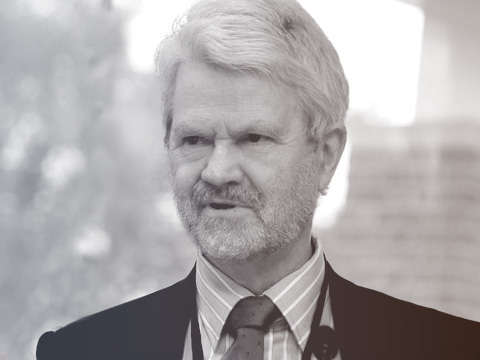
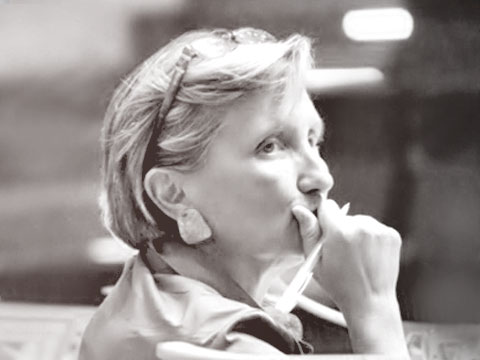

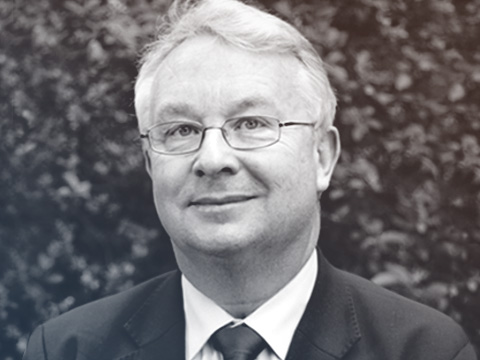
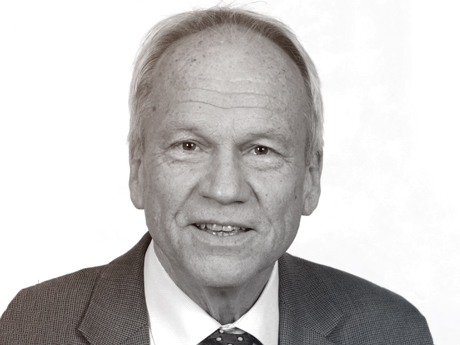
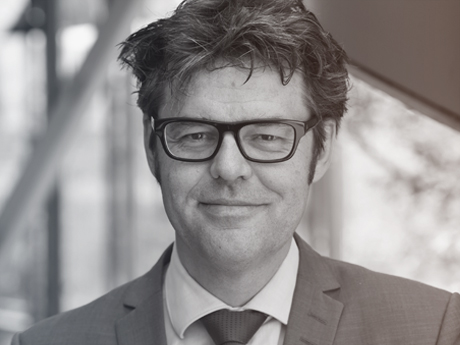


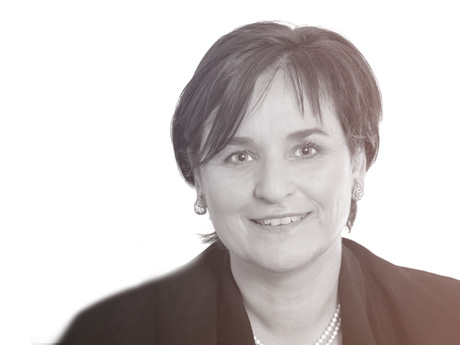
Rahmenprogramm
Es erwartet Sie ein attraktives Rahmenprogramm. Bei der Anmeldung zur Konferenz haben Sie folgende Auswahlmöglichkeiten:
12. April, 18:00-22:00
Kosten:
Das Konferenz Dinner wird im Quartier Zürich West, dem ehemaligen Industriequartier der Stadt Zürich, serviert. Bis 2011 wurden in dem hoch über den Dächern gelegenen Lokal noch Bananen gereift. Mittlerweile finden in der Bananenreiferei verschiedene Events statt. Das Lokal bietet eine grosse Terrasse mit weitem Blick über Zürich.
Inklusive Bahntickets, Seilbahn und atemberaubender Schifffahrt
14. April, 8:45-17:00
Um 8:45 Uhr treffen wir uns am Zürcher Hauptbahnhof und nehmen den Zug nach Arth-Goldau. Von dort aus fahren wir mit der Rigi Bahn und einer zweiten Seilbahn, die uns bis hinauf nach Rigi Scheidegg bringt, wo wir eine wunderschöne zweistündige Wanderung machen. Gegen 12:30 Uhr ist es Zeit für den wohlverdienten Lunch. Sie können Ihr eigenes Lunchpaket mitbringen oder im Hotel Rigi Kaltbad essen. (Die Kosten für den Lunch sind nicht im Preis enthalten.) Anschliessend nehmen wir die Seilbahn zurück nach Vitznau, wo unsere atemberaubende Schifffahrt nach Luzern beginnt. Von Luzern aus fahren wir mit der Bahn zurück nach Zürich, wo wir gegen 17:00 Uhr ankommen.
Die Kosten für diesen Ausflug zur Rigi liegen bei 95 CHF und es müssen mindestens zehn Personen teilnehmen. Für den Ausflug gilt eine Stornierungsregelung bei schlechtem Wetter – bei Regen oder Schnee wird die Rundfahrt abgesagt. Über einen möglichen Ausfall werden die Teilnehmer am 11. April informiert, sie erhalten eine Rückerstattung in Höhe von 95 CHF.
Geschichte wird auf diesem Gang zu noch bestehenden Gräben, Gassen und Fundamenten greifbar. Erraten Sie, worauf die heute glamouröse Bahnhofstrasse gebaut wurde und wohin die Notdurft der Menschen im Mittelalter entsorgt wurde? Lassen Sie sich überraschen!
Die Kosten für diese Stadtführung liegen bei 25 CHF und es müssen mindestens zehn Personen teilnehmen.
14. April, 11:00-13:00
Lernen Sie Zürichs Vergangenheit und Gegenwart anhand ausgewählter Bauten, Geschichten und Anekdoten kennen. Die zahlreichen Zeugnisse aus längst vergangenen Tagen, welche die frühe internationale Bedeutung der Stadt veranschaulichen, werden Sie begeistern.
Die Kosten für diese Stadtführung liegen bei 25 CHF.